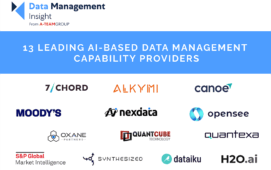Although the UK Financial Services Authority (FSA) has provided a four month window for firms to become compliant with transaction reporting using the Alternative Instrument Identifier (AII), firms are likely to wait until the final November deadline for compliance before they begin using the new derivative instrument ID, according to Christopher Dingley, product manager for transaction reporting and matching at Xtrakter. The trade matching and regulatory reporting solution vendor arm of Euroclear this month launched its own functionality aimed at facilitating this type of reporting, which Dingley reckons will gain sufficient traction to allow it to be a pre-eminent provider in the AII space.
Xtrakter this month launched functionality to allow the reporting of derivatives transactions to the FSA using the AII methodology, which was devised by the Federation of European Securities Exchanges (FESE) and adopted as a standard by the Committee of European Securities Regulators (CESR) in 2007 as part of MiFID, but was not implemented by the FSA until this year. CESR (now the European Securities and Markets Authority, ESMA) had originally wanted each competent authority (CA) to collect this information and share relevant reports with other CAs by November 2008, one year after MiFID went live. However, the FSA and approved reporting mechanisms (ARMs) found the practical reality of implementation was much harder than first thought.
It is this delay and the subsequent “mothballing” of the various transaction reporting projects internally within financial institutions that Dingley reckons will hold back adoption ahead of the deadline. “The FSA has provided a window from the 8 August until the 13 November for firms to become compliant, at which point they must report with AII. The projects have been mothballed inside firms for two years and so they will need to look at the changes that have occurred in that period in terms of AII reporting. Firms, I believe, were ready to report in 2009 but are more likely to wait until the November date rather than implementing now,” he explains.
This, of course, means that vendors such as Xtrakter and rival London Stock Exchange (LSE), which also recently launched its AII solution alongside its acquisition of the FSA’s Transaction Reporting System (TRS), will have to wait for the related revenue stream to roll in. In fact, Dingley notes that it has been waiting much longer than a few months: “Xtrakter was approved for transaction reporting with AII pre-the original 2009 deadline, so we have been ready since September 2009.”
Once it happens though, Dingley is confident that in spite of the competition, which he will not comment upon, Xtrakter will gain sufficient market share. “Xtrakter will aim to be one of the pre-eminent providers in the AII space and I believe we stand a good chance because of our provision of ease of adoption as well as the dashboard and management information visibility. We aim at becoming a premier regulatory reporting provider,” he contends.
Regarding the functionality he is referring to, Xtrakter claims that all firms are able to report in real time or through its XML or flat file batch systems to the FSA’s transaction reporting system and send AII through the vendor, which it will then validate and apply all of its transaction reporting services to, before sending to the FSA. “We offer full offer full compatibility and validation of the AII before it goes off to the FSA to ensure firms report in a compliant manner,” he says.
In terms of extra functionality and the dashboard he mentions: “The biggest thing we have launched this year has been the Trax dashboard, which provides clients with full transaction reporting lifecycle analysis of all of firms’ transaction reporting to the FSA, from their systems, through our systems onto the FSA. We provide a full history and summary reports, all via a customisable, web-based front end. Firms can download all of their transaction reports and all statuses as a real value add and AII is fully integrated into that.”
Trax also currently enables its users to report derivatives transactions using AII to the Dutch and French regulators, namely De Autoriteit Financiële Markten (AFM) of the Netherlands and Autorité Des Marchés Financiers (AMF) of France, both of which are also either on the LSE’s radar or currently on its list of reporting capabilities. “We offer real-time reporting for trades in Belgian government debt issues,” adds Dingley. Unlike the LSE, however, Xtrakter is not looking to offer reporting capabilities beyond these markets at the moment.
The AII is composed of six elements: the ISO 10383 market identifier code (MIC) of the regulated market where the derivative is traded; the exchange product code (the code assigned to the derivative by the regulated market where it is traded); derivative type (identifying whether the derivative is an option or a future; put/call identifier (mandatory where the derivative is an option); expiry/delivery/prompt date (exercise date/maturity date of a derivative); and strike price (mandatory where the derivative is an option). The only new element is the exchange product code, as firms reporting transactions in OTC derivatives already use many of the other elements.
Subscribe to our newsletter




